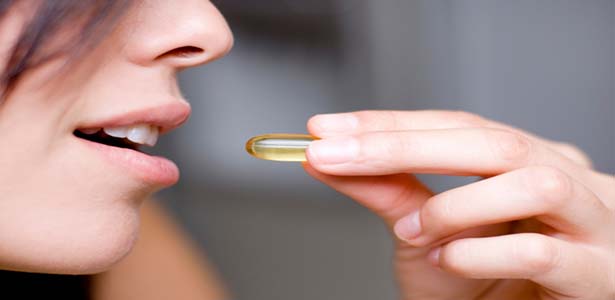Let’s keep the race to achieving that ‘Summertime Beach Body’ moving, as we explore the role of vitamins a little further. As you recall, I wrote about the deficient use of vitamins in our daily diets. Most importantly, the huge discrepancy of ingesting empty calories over a period of a day (maybe in the realm of 3-40000) and missing the valuable nutrient necessary to get our bodies running and operating at a high level.
Last time I covered A and C so today, we’ll tackle B.
The role vitamins play in the normal functioning of the body is huge. Recall that vitamins must be consumed and cannot be produced by the body. They help maintain our health and normal body functions, which are critical in preventing disease.
Let’s take a look at Vitamin B.
Vitamin B has many forms, most of which are important for digestion, carbohydrate metabolism and skin and cell repair. The good thing is that Vitamin B in any form is easy to find and can be supplemented into any diet.
1. Vitamin B12
Vitamin B12 helps in building DNA, making red blood cells, and is important for nerve cell function. Naturally in fish, red meat, poultry, milk, cheese, and eggs. You can also find it in some breakfast cereals. Teenagers should get 2.4 micrograms of vitamin B12 daily.
Optimal Intake: The current recommended intake for vitamin B12 is 6 micrograms per day. The lack of this vitamin used to cause pernicious anemia. Now, older people who have difficulty absorbing vitamin B12 from foods may suffer from forms of anemia as well. from food. Cool fact: some people diagnosed with dementia or Alzheimer’s disease are actually suffering from the more reversible vitamin B12 deficiency.
2. Vitamin B6
Vitamin B6 is important for the normal functioning of the brain and the nerves (we need that). Helps the body break down proteins and make red blood cells, which is essential if you are working out. How can you build and repair muscles after bouts of exercise without it. A wide variety of foods including potatoes, bananas, beans, seeds, nuts, red meat, poultry, fish, eggs, spinach, and fortified cereals contain vitamin B6. Teenage boys need 1.3 mg of vitamin B6 daily, while teenage girls need 1.2 mg.
Optimal Intake: A healthy diet should include 1.3 to 1.7 milligrams of vitamin B6. Higher doses have been tested as treatment options for attention deficit disorder and carpal tunnel syndrome. Sadly, to date there is little evidence that it works. 🙁
3. Thiamin (also called vitamin B1)
Thiamin helps the body convert carbohydrates into energy. Responsible for the proper functioning of the heart, muscles, and the nervous system. You can get thiamin from many different foods including fortified breads, cereals and pasta; meat and fish; dried beans, soy foods and peas; and whole grains like wheat germ. Teenage boys need 1.2 mg of thiamin each day and teenage girls need 1 mg.
4. Niacin (also called vitamin B3)
Niacin helps the body turn food into energy. Different from B1 because it was specific to carbohydrate metabolism. B3 aids in digestion and is also important for nerve function. You can find it in red meat, poultry, fish, fortified hot and cold cereals, and peanuts. Teenage boys need 16 mg of niacin daily. Teenage girls need 14 mg a day.
5. Riboflavin (also called vitamin B2)
Riboflavin is essential for turning carbohydrates into energy and producing red blood cells (oooohhh, a hybrid – it does two function of other vitamin B derivatives). Add in the fact that it is critical for the maintenance of good vision. Some of the best sources of riboflavin are meat, eggs, legumes (like peas and lentils), nuts, dairy products, leafy green vegetables, broccoli, asparagus, and fortified cereals. Teen guys need 1.3 mg of riboflavin per day and teen girls need 1 mg.
6. Folate (also known as vitamin B9, folic acid, or folacin)
Folate helps the body make red blood cells, break down proteins, and keep the heart healthy. Nursing mother’s take this like crazy because that baby needs a good, healthy flow of oxygenated blood. It’s also needed to make DNA. Dried beans and other legumes, leafy green vegetables, asparagus, oranges and other citrus fruits, and poultry are good sources of this vitamin. So are fortified or enriched bread, noodles, and cereals. Teen girls and guys need 400 micrograms of folate daily.
Optimal Intake: Current recommended intake for folic acid is 400 micrograms per day. There are many excellent sources of folic acid including prepared breakfast cereals, beans, and fortified grains.
That’s all I have for Vitamin B. Chomp down and enjoy. Take care.






















1 thought on “Vitamin B – Achieving A Better You With Vitamins”
Lack of B12 still does cause pernicious anemia. I currently suffer from it and must have it intravenously.